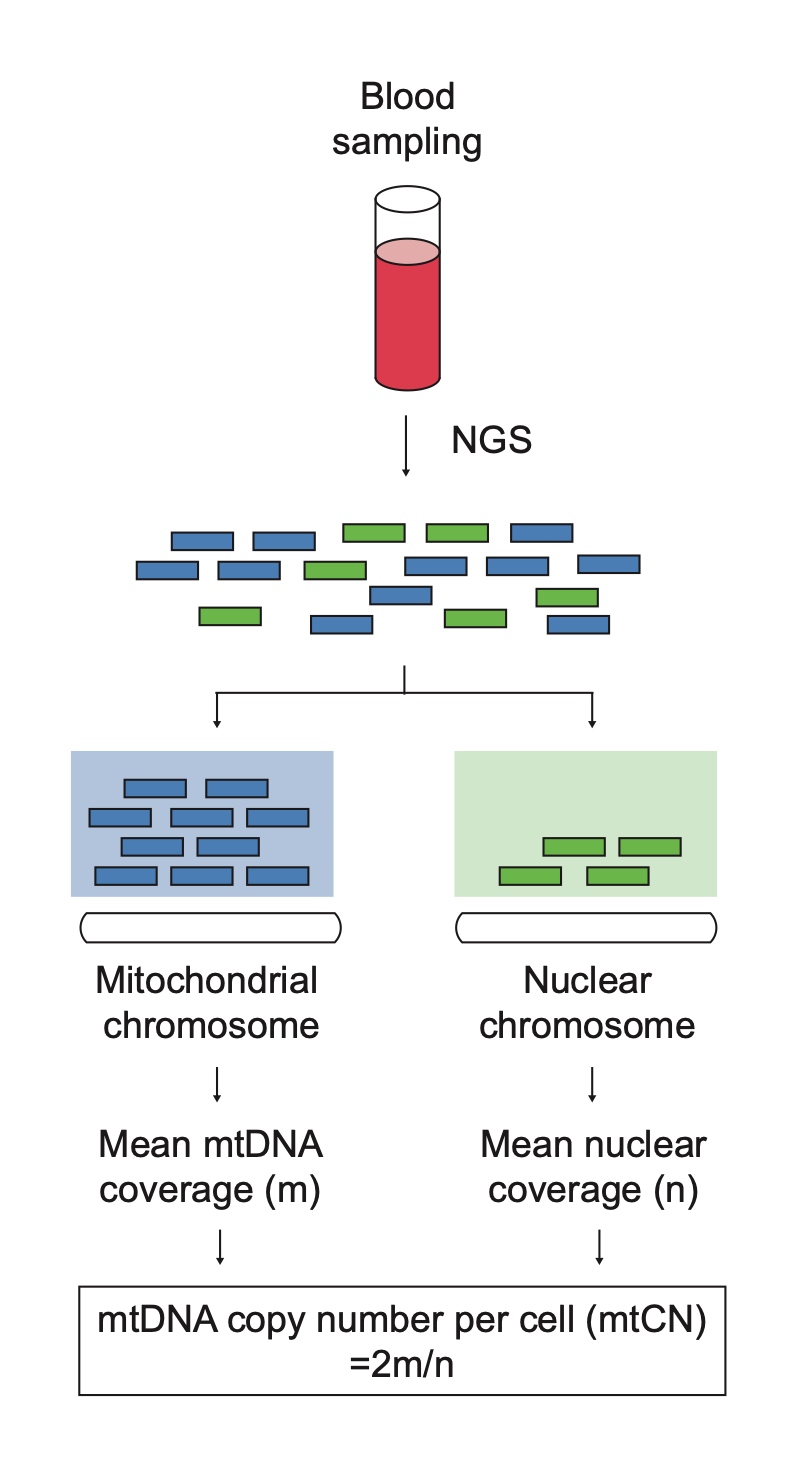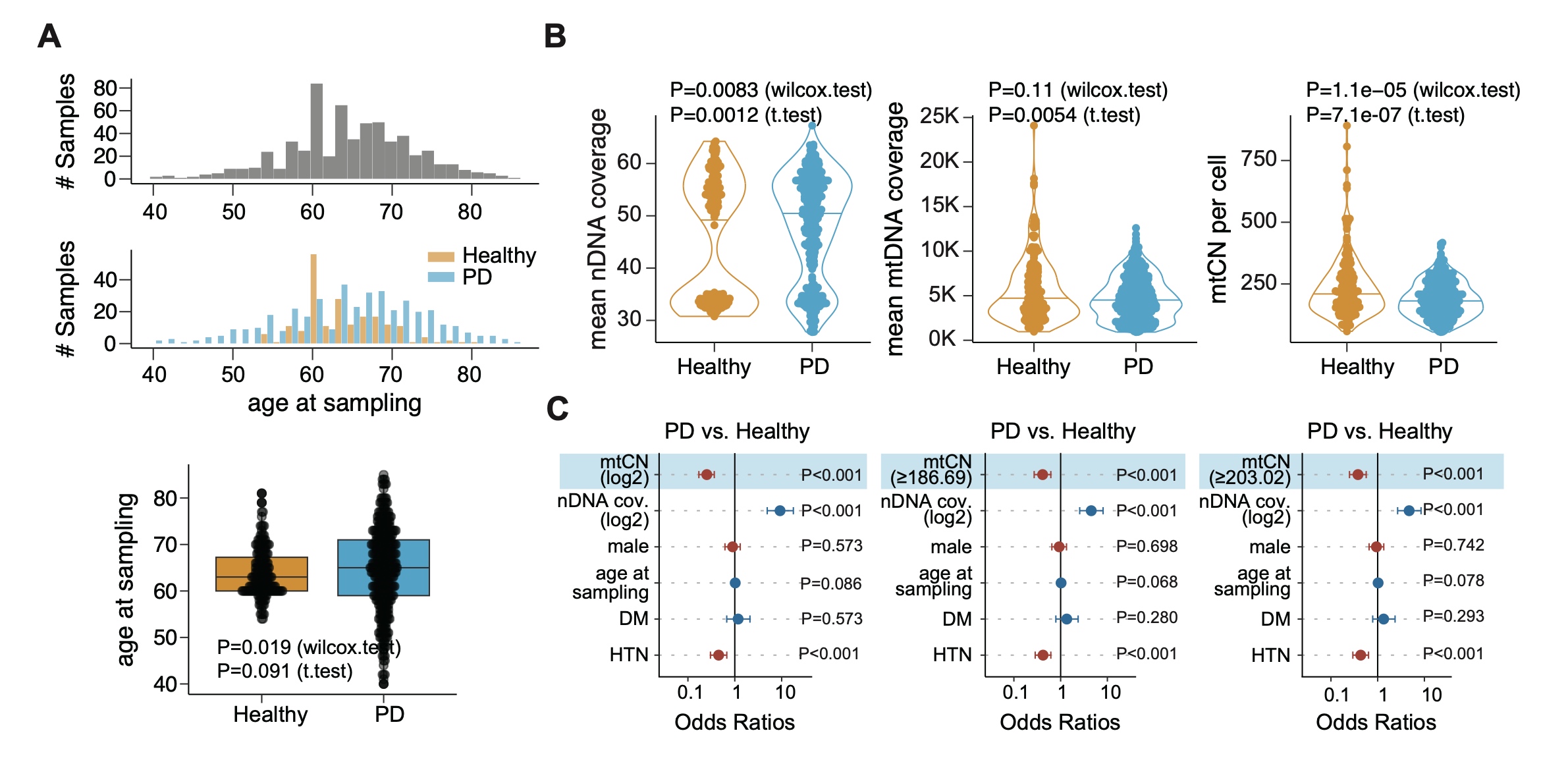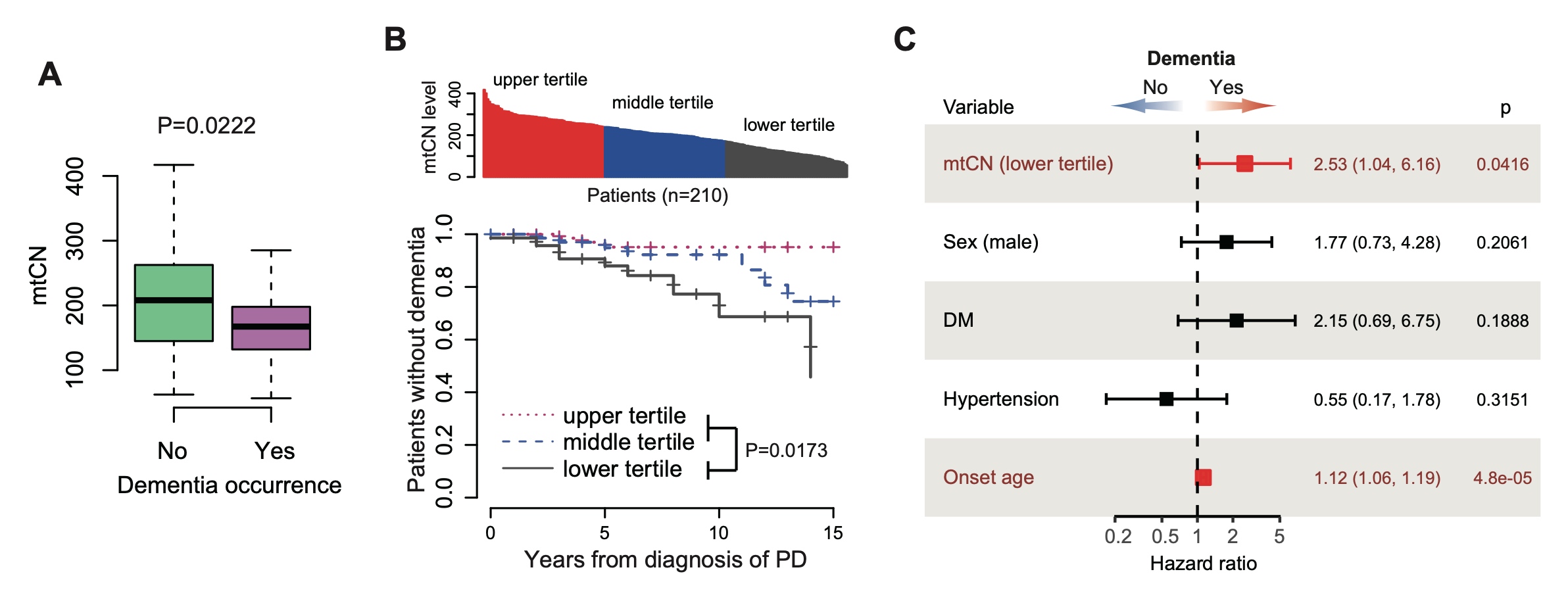Category: Parkinson's Disease: Genetics
Objective: We aimed to investigate the diagnostic and prognostic role of blood mitochondrial DNA copy number (mtDNA-CN) measured by whole genome sequencing (WGS) in relation to motor severity or cognitive impairment in Parkinson’s disease (PD).
Background: Mitochondria function affects PD through the accumulation of pathogenic alpha-synuclein, oxidative stress, and impaired autophagy. The mtDNA-CN refers to the number of copies of mitochondrial DNA present in a cell, which is an easily assessable proxy for mitochondrial function. Previous studies showed that blood mtDNA-CN was lower in patients with PD and Alzheimer’s disease than in healthy controls. However, little is known about the correlation between mtDNA-CN and the severity of motor symptoms or dementia in PD.
Method: We recruited 405 patients with PD and 200 healthy individuals between 2018 and 2020. We estimated mtDNA-CN using WGS from blood. We defined mtDNA-CN as [2*mitochondrial DNA coverage/nuclear DNA coverage] (Figure1). The Wilcoxon signed-rank test was performed to compare mtDNA-CN between PD and healthy controls. Pearson correlation analysis was performed to find the association between mtDNA-CN and motor severity (UPDRS II+III at medication off state, and Hoehn and Yahr stage (H&Y)). In a subgroup of PD patients who were diagnosed with PD within three years, Cox regression analysis was performed to assess the progression of motor symptoms from H&Y 2.5 to 3, and the progression to dementia according to mtDNA-CN, after adjusting for age and sex.
Results: The level of mtDNA-CN was significantly lower in PD than in healthy controls (median 179.1 vs. 211.6, P=1.1×10-5) (Figure2). The level of mtDNA-CN per cell was negatively correlated with UPDRS (II+III) scores (r=-0.17, P=0.023), and H&Y stage (r=-0.10, P=0.04). Among 210 patients with PD, who were within 3 years from PD diagnosis, 21 (10.0%) patients developed dementia. Using Cox regression analysis, we found that patients in the lowest tertile of mtDNA-CN were associated with higher risk of dementia, compared to those in the highest tertile (HR=3.73, CI 1.04-13.4, P=0.043) (Figure3). However, mtDNA-CN was not associated with progression to H&Y 3.
Conclusion: Our study provides significant insights into blood mtDNA-CN as the potential diagnostic biomarker for PD, as well as a prognostic marker for dementia in PD.
To cite this abstract in AMA style:
S. Jo, JH. Oh, S. Lee, J. Lee, CO. Sung, SJ. Chung. Mitochondrial DNA copy number is associated with the severity of motor symptoms and dementia in Parkinson’s disease [abstract]. Mov Disord. 2023; 38 (suppl 1). https://www.mdsabstracts.org/abstract/mitochondrial-dna-copy-number-is-associated-with-the-severity-of-motor-symptoms-and-dementia-in-parkinsons-disease/. Accessed December 28, 2025.« Back to 2023 International Congress
MDS Abstracts - https://www.mdsabstracts.org/abstract/mitochondrial-dna-copy-number-is-associated-with-the-severity-of-motor-symptoms-and-dementia-in-parkinsons-disease/



